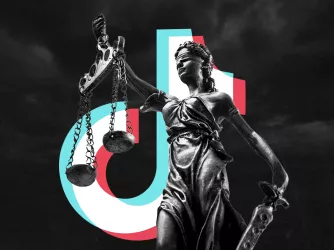Table of Contents
The Problem with Stanford's Definition of 'Intoxication'
I want to take a few moments today to discuss a particular aspect of FIRE's recent work regarding due process protections for those accused of sexual misconduct. Specifically, I want to focus on the issues of consent and intoxication. Because many cases of sexual misconduct involve intoxicated students and questions of consent, precisely how a school defines intoxication is of obvious importance when thinking about due process rights and ensuring fair procedures.
Let's take Stanford University as an example. As FIRE detailed in yesterday's press release, Stanford defines sexual assault as occurring "when a person is incapable of giving consent." This certainly makes sense. So when is a person unable to consent? According to Stanford, "A person is legally incapable of giving consent ... if intoxicated by drugs and/or alcohol." And here's the root of the problem: Stanford doesn't define "intoxicated."
Why is this omission an issue? Because, technically speaking, every alcoholic beverage consumed leaves one "intoxicated," insofar as one has just imbibed alcohol. Even the first drink results in some intoxicating effect: After all, there's now alcohol in your bloodstream, whereas there wasn't before you had that first drink. So to some degree, however mild, you're intoxicated.
Of course, a single alcoholic beverage will affect different people in different ways. Even without considering an individual's tolerance for alcohol, a single gin-and-tonic will intoxicate someone who weighs 98 pounds in a more significant and immediate way than it will to someone who weighs three times as much. But since each has consumed alcohol, each is thus "intoxicated," per the letter of Stanford's policy.
Because of its vagueness, Stanford's policy paints with a broad brush: All alcoholic beverages are intoxicants, leaving all individuals who consume them—even one of them—technically intoxicated. And if we're talking about an individual who's had a couple of glasses of wine with dinner, he or she is even more clearly subject to being described as "intoxicated"—and thus unable, per Stanford's policy, to consent to sexual activity of any kind.
Now, I'd imagine that Stanford doesn't intend its sexual assault policy to ensnare all Stanford students who have any kind of sexual contact whatsoever after drinking a few glasses of wine. But that's precisely what it does.
I'm sure that Stanford would argue that it would never work that way in practice: that they understand what sexual assault is, and that they would never bring charges against a married student couple that drank those glasses of wine at dinner prior to sexual activity that was explicitly agreed upon by both parties. But the problem is that by virtue of Stanford's broad policy, Stanford administrators nevertheless maintain the option of punishing that couple or others like them, and Stanford students just have to trust that they won't.
And as we learned from the Stanford case we discussed yesterday in our press release, that trust is misplaced. In that case, a student was found guilty of sexual assault following sexual activity in which both parties were intoxicated. As justification for the guilty verdict, the "findings of fact" from that case simply note that the accuser was intoxicated. It does not specify that she was intoxicated to the extent that she could not make a decision about whether or not to have sex. And why would it? That level of intoxication is not required by Stanford's policy in order to find the accused guilty of sexual assault. Instead, Stanford's disciplinary panel simply determined that the accuser was intoxicated to some degree, and stopped its inquiry there. As far as Stanford's concerned, that case is closed—and the accused student is guilty.
FIRE has run into this issue before. Prior to intervention from FIRE, Duke University's 2009 Sexual Misconduct policy read:
Conduct will be considered "without consent" if no clear consent, verbal or nonverbal, is given. It should be noted that in some situations an individual's ability to freely consent is taken away by another person or circumstance. Examples include, but are not limited to, when an individual is intoxicated, "high," scared, physically or psychologically pressured or forced, passed out, intimidated, coerced, mentally or physically impaired, beaten, threatened, isolated, or confined. [Emphasis added.]
When we pointed out the problems here, Duke changed its policy. It now reads:
Conduct will be considered "without consent" if no clear consent, verbal or nonverbal, is given. It should be noted that in some situations an individual's ability to freely consent is taken away by another person or circumstance. Examples include, but are not limited to, when an individual is incapacitated due to alcohol or other drugs, scared, physically forced, passed out, intimidated, coerced, mentally or physically impaired, beaten, threatened, isolated, or confined. [Emphasis added.]
Obviously, "incapacitated" is qualitatively different than merely "intoxicated." This is a distinction with a real difference. If one is "incapacitated," one has moved far beyond mere intoxication; indeed, one can no longer effectively function and thus cannot consent.
Courts confronting this problem have recognized that simple intoxication does not necessarily equal incapacitation, and therefore does not necessarily foreclose consent. In People v. Giardino, 82 Cal. App. 4th 454, 466 (2000), the California Court of Appeals wrote:
It is not enough that the victim was intoxicated to some degree, or that the intoxication reduced the victim's sexual inhibitions. Impaired mentality may exist and yet the individual may be able to exercise reasonable judgment with respect to the particular matter presented to his or her mind. Instead, the level of intoxication and the resulting mental impairment must have been so great that the victim could no longer exercise reasonable judgment concerning that issue. [Internal citations and quotations omitted.]
Though Stanford's judicial proceedings need not replicate a court of law, the underlying observation from the court here is deeply relevant: Stripping individuals of the ability to consent upon mere intoxication is problematic because it misrepresents their agency in so many circumstances. (I'd argue that this is true for both the accuser and the accused, but that's for another blog.)
Admittedly, parsing consent is tough work, and the line separating "intoxication" from "incapacitation" is fuzzy. But this is a crucial boundary to establish if a college or university wants to ensure that its definition of consent for the purposes of sexual assault isn't absurdly broad. If colleges and universities like Stanford are going to adjudicate serious charges like sexual assault, as OCR has dictated that they must under Title IX, they must do so in a way that is fair for all students and that doesn't render anyone who's had a drink an automatic victim.
Recent Articles
FIRE’s award-winning Newsdesk covers the free speech news you need to stay informed.

FIRE statement on Supreme Court’s ruling in TikTok v. Garland

‘The lawsuit is the punishment’: Reflections on Trump v. Selzer — First Amendment News 453

West Virginia Executive Order on ‘DEI’ unconstitutionally limits university classroom discussions.
